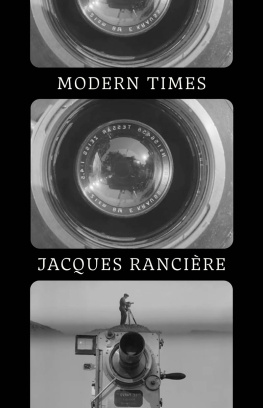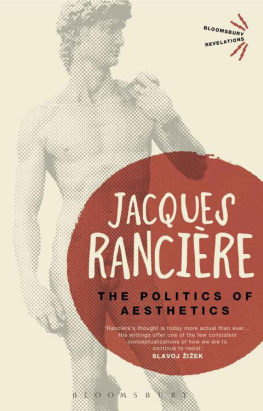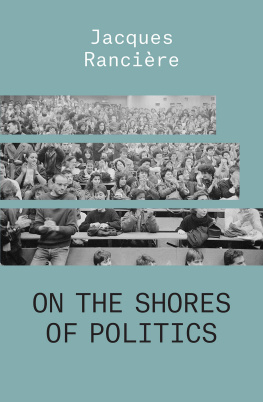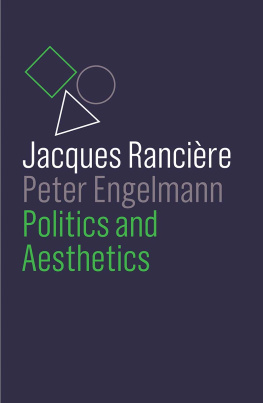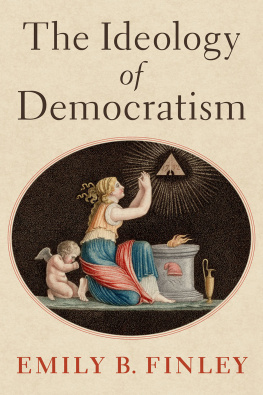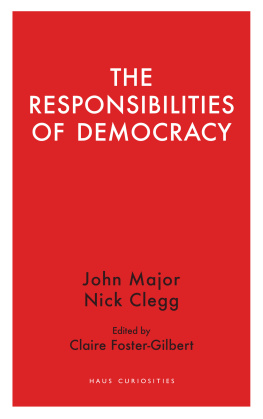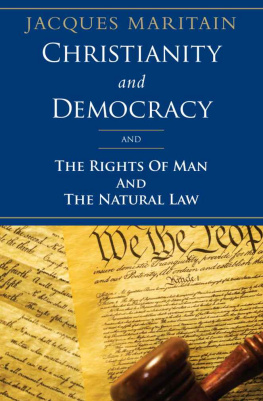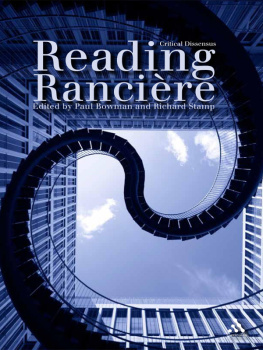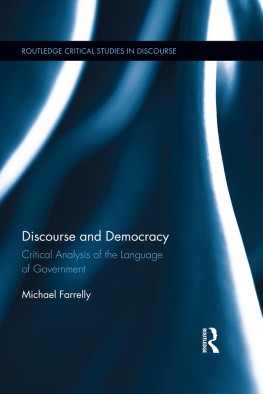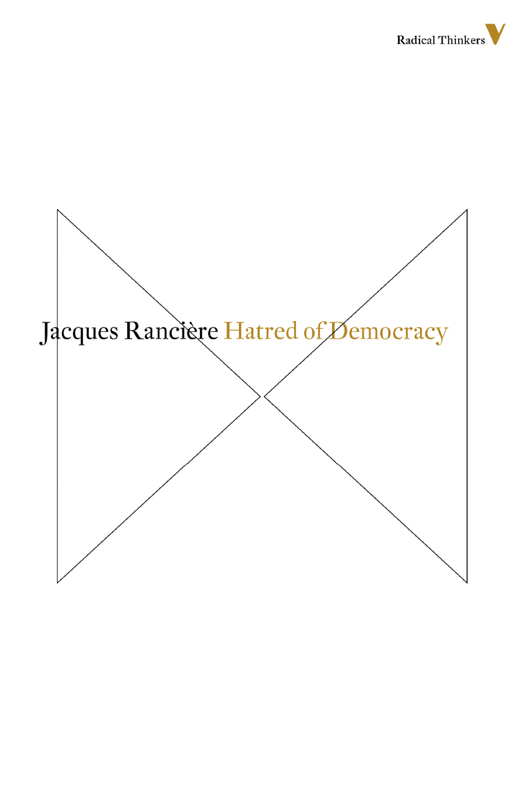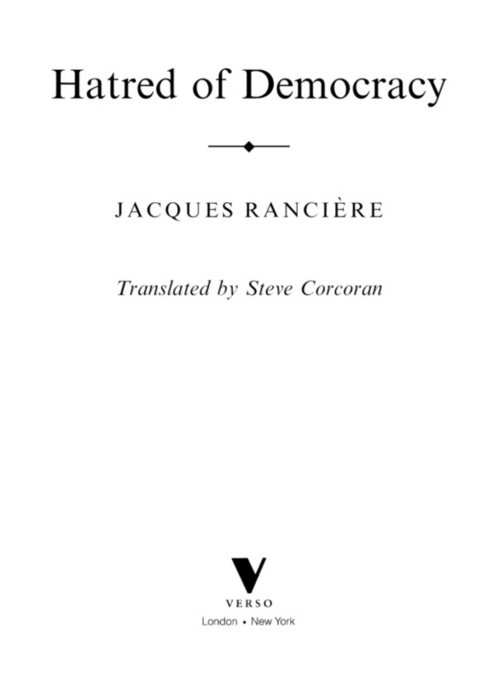This edition published by Verso 2014
Translation Steve Corcoran 2006, 2009, 2014
First published as La haine de la dmocratie
La Fabrique 2005
All rights reserved
The moral rights of the author have been asserted
Verso
UK: 6 Meard Street, London W1F 0EG
US: 20 Jay Street, Suite 1010, Brooklyn, NY 11201
www.versobooks.com
Verso is the imprint of New Left Books
ISBN-13: 978-1-78168-150-3
eBook ISBN: 978-1-78168-204-3
eISBN (UK): 978-1-78168-513-6
British Library Cataloguing in Publication Data
A catalogue record for this book is available from the British Library
Library of Congress Cataloging-in-Publication Data
A catalog record for this book is available from the Library of Congress
v3.1
Contents
Introduction
A young woman keeps France in suspense with her story of a make-believe attack; reality TV, homosexual marriage and artificial insemination increase in popularity. There is no point looking for what groups together events of such disparate natures. Book after book, article after article, programme after programme, hundreds of philosophers and sociologists, political scientists and psychoanalysts, journalists and writers, have already supplied us with the response. All these symptoms, they say, are manifestations of the same illness; for all these effects there is only one cause. This cause is called democracy, that is, the reign of the limitless desire of individuals in modern mass society.
It is imperative to see what constitutes the singularity of this denunciation. Hatred of democracy is certainly nothing new. Indeed it is as old as democracy itself for a simple reason: the word itself is an expression of hatred. It was, in Ancient Greece, originally used as an insult by those who saw in the unnameable government of the multitude the ruin of any legitimate order. It remained synonymous with abomination for everyone who thought that power fell by rights to those whose birth had predestined them to it or whose capabilities called them to it. And it still is today for those who construe revelations of divine law as the sole legitimate foundation on which to organize human communities. The violence of this hatred is certainly on the contemporary agenda. It is not, though, an objective of this book, for a simple reason: I have nothing in common with those that spread it, and so nothing to discuss with them.
Alongside this hatred of democracy, history has born witness to the forms of its critique. Critique acknowledges somethings existence, but in order to confine it within limits. There have been two great historical forms of critique of democracy. There was the art of aristocratic legislators and experts who strove to make a compromise with democracy, viewed as a fact that could not be ignored. The drawing up of the United States constitution is the classic example of this work of composing forces and of balancing institutional mechanisms intended to get the most possible out of the fact of democracy, all the while strictly containing it in order to protect two goods taken as synonymous: the government of the best, and the preservation of the order of property. The success of that critique en acte naturally fuelled the success of its contrary. The young Marx had no troubles exposing the reign of property lying at the foundation of the republican constitution. The republican legislators had made no secret of it. But in so doing he was able to set a standard of thought whose resources have not yet been exhausted: the notion that the laws and institutions of formal democracy are appearances under which, and instruments by which, the power of the bourgeois class is exercised. The struggle against appearances thus became the path leading to real democracy, where liberty and equality would no longer be represented in the institutions of law and State but embodied in the very forms of concrete life and sensible experience.
The new hatred of democracy that is the subject of this book does not strictly fall under either of these models, though it combines elements borrowed from both. Its spokespersons all live in countries that proclaim themselves to be not just democratic States but democracies tout court. None of them call for a democracy that would be more real. On the contrary, they have all had too much of it. Though they dont complain about the institutions professing to embody the power of the people, nor do they propose any measures to restrain that power. The institutional mechanics that impassioned the contemporaries of Montesquieu, Madison and Tocqueville do not interest them. It is about the people and its mores that they complain, not about the institutions of its power. For them democracy is not a corrupt form of government; it is a crisis of civilization afflicting society and through it the State. Whence, some movement back and forth that might at first sight seem surprising. Indeed, the same critics who endlessly denounce that democratic America for having given us all the evils associated with the respect for differences, minority rights and affirmative action, that undermine [French] republican universalism, are the first to applaud when the same America undertakes to spread its democracy throughout the world with armed force.
Double discourse on democracy is certainly nothing new. We are accustomed to hearing that democracy is the worst of governments with the exception of all the others. But the new antidemocratic sentiment gives the general formula a more troubling expression. Democratic government, it says, is bad when it is allowed to be corrupted by democratic society, which wants for everyone to be equal and for all differences to be respected. It is good, on the other hand, when it rallies individuals enfeebled by democratic society to the vitality of war in order to defend the values of civilization, the values pertaining to the clash of civilizations. The thesis of the new hatred of democracy can be succinctly put: there is only one good democracy, the one that represses the catastrophe of democratic civilization. The pages that follow will try to analyze the formation of this thesis and draw out its stakes. The issue is not simply to describe a form of contemporary ideology. For this analysis will also inform us about the state of our world and about what this world understands by politics. Accordingly, it can help us positively to understand the scandal borne by the word democracy and to rediscover the trenchancy of its idea.
1
From Victorious Democracy to Criminal Democracy
Democracy Stirs In The Middle East: with this title a magazine that carries the flame of economic neoliberalism celebrated some months ago the success of the elections in Iraq and the anti-Syrian demonstrations in Beirut.of a constitutional State, elections and a free press. It also means bringing it disorder.
One will recall the statement issued by the American Secretary of Defense concerning the pillaging that occurred after the fall of Saddam Hussein. We have, he basically said, brought freedom to the Iraqis. And yet, freedom also means the freedom to do wrong. This statement is not merely a circumstantial witticism. It is part of a broader logic that can be reconstituted from its disjoined elements: it is because democracy is not the idyll of the government of the people by the people, but the disorder of passions eager for satisfaction, that it can, and even must, be introduced from outside by the armed might of a superpower, meaning not only a State disposing of disproportionate military power, but more generally the power to master democratic disorder.


